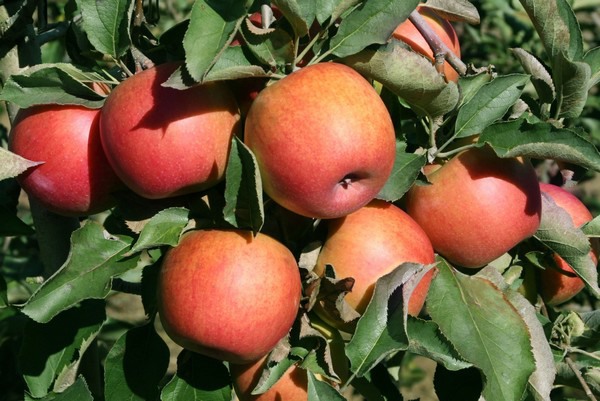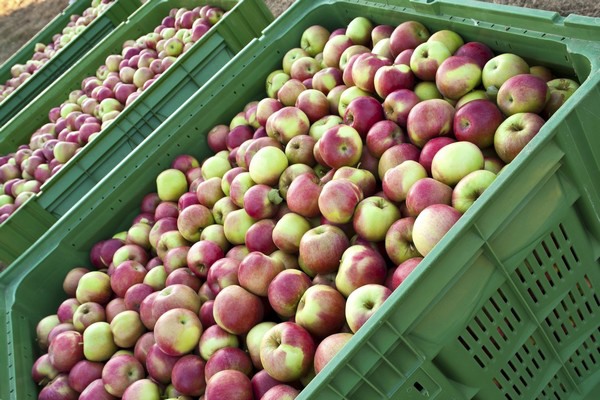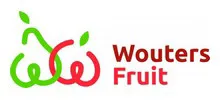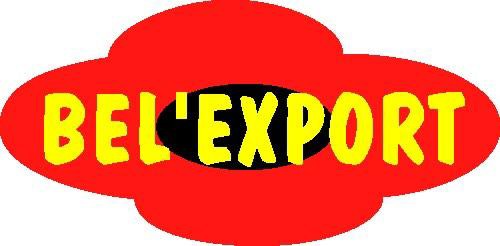Jonagold apples are struggling. In Belgium, this variety is still, by far, the most popular apple, yet there are reports of more and more Belgian growers uprooting their Jonagold trees. Does the Belgian Jonagold apple still have a future? Asking the experts, Tony Derwael (Bel'Export), Wim Wouters (Wouters Fruit), and Laurent De Smedt (BelOrta) yields a fairly unequivocal answer: "Jonagolds will never disappear from the Belgian market, but on the export market, unfortunately, they seem to have little use anymore."
That is a disappointing observation with no solution as yet. "The entire Belgian apple sector is struggling," begins Laurent. "In Belgium, there's a total production of 20 kilos per person, while consumption is only 8.8 kg. Add that two kilograms of that is from imported apples, and you're left with 6.8 kilos for local apples. The remainder has to be sold overseas. However, many countries have the same problem. France and the Netherlands are export countries, and Germany has plenty of Red Jonaprince, which is similar to Jonagold. That leaves you with an oversupply that then goes to the industry. Jonagolds store well so can still be exported toward the end of the season. But, then other varieties like Gala and Elstar must first be sold to make room for the Jonagold-like apples."

Wim considers the competition from Poland an important factor too. "Belgian Jonagold apples' problem is that Poland also cultivates this variety. And those are sold on all the same markets as the Belgian kind. However, given the conditions under which they're grown in Belgium, we cannot compete price-wise. It's a bit unfair. There's a big industry market, but that's really only good for clearing the third or fourth harvest. And with the €0.22 or €0.23 you then get for good peeling apples, one cannot afford to grow apples," he says.
Advised to grub up
Inevitably, that has led to many Belgian growers deciding to grub up their Jonagold trees. "I'm not convinced we should grow only Jonagold for the Belgian market either," adds Tony. "But if that indeed becomes the case, about half of Belgium's 4,000 ha Jonagold acreage will have to disappear.” Laurent says growers are left with little choice. "We advised our growers in the summer to grub up orchards older than 18 years, even if those trees still bear good apples because of overproduction. In that respect, growers should cultivate various varieties. Only growing Jonagold is simply no longer viable."
Will always have a place in Belgium
And, so, the question arises: is Jonagold's future in true jeopardy? A resounding 'no' seems to be the all-around conclusion. "There will always be a place for Jonagold in Belgium," Laurent continues. "It remains a wonderful product and a good apple for the Belgian market."
Wim agrees: "I think we still have the best Jonagolds, but their quality must remain consistent to keep Belgians choosing the Jonagolds. It was a very successful variety initially, but I don't believe we got out what we could have. These apples store perfectly for a long time if picked at the right time and stored properly. Red Jonaprince, for example, is still sometimes harvested too early, so their quality isn't always top-notch. People don't forget that easily."

Consumption must be boosted
Also, fruit and vegetable consumption, in general, is declining in Belgium, so there is work to be done in that area too. "People are eating three percent fewer vegetables than the previous year; for fruit, it's even seven percent," Tony explains. "Apple consumption is falling especially fast. In the previous millennium, per capita consumption in Belgium was still 12 kg; now, it's just over eight. People seem to increasingly prefer exotics or soft fruits like berries and strawberries. That’s hard but not impossible to remedy. I think the recession, affecting consumer purchasing power by ten percent, combined with the call for green mileage may help shoppers choose cheaper, local apples over, say, overseas fruit."
"We must also support the call to have the government scrap VAT on fruit and vegetables in Belgium. Not to benefit retailers but growers. Then that six percent VAT can compensate for the higher cultivation costs," says Tony. Plus, that could encourage consumption, something Laurent says is a must.
"We've launched all kinds of promotions with Belgian retailers. Those have been successful because more apples have already been sold so far than last year. However, I think you can conclude that, realistically, these promotions can get a person to eat, at most, two more kgs of apples. That's not enough to empty the current volumes, so grubbing up is still unavoidable," he concludes.
For more information: Wim Wouters
Wim Wouters
Fruithandel Wouters
Kasteellaan 21
3454 Rummen, Belgium
Tel.: +32 (0)475283696
[email protected]
www.woutersfruit.be
Tony Derwael
Bel’Export
Neremstraat 2
3840 Borgloon, Belgium
Tel: +32 (0)12 67 10 50
Cell: +32 (0)475 723 022
[email protected]
www.belexport.com
 BelOrta
BelOrta
Mechelsesteenweg 120
2860 Sint-Katelijne-Waver, Belgium
Tel.: +32(0)15 55 11 11
[email protected]
www.belorta.be










